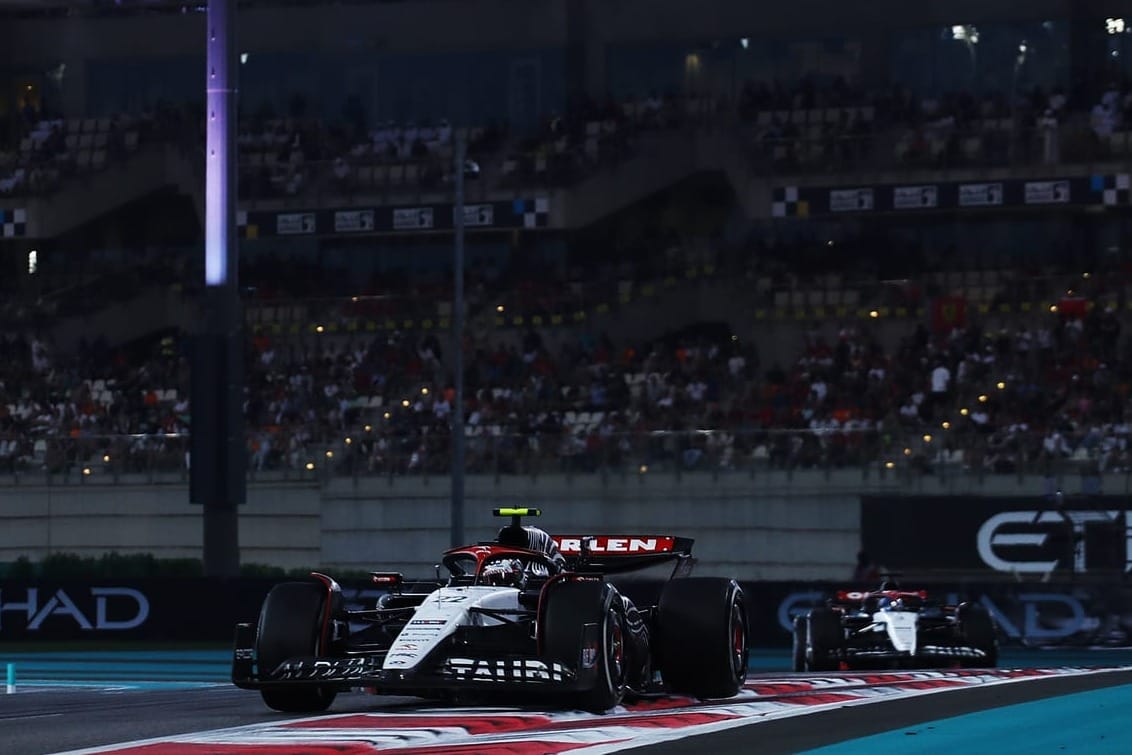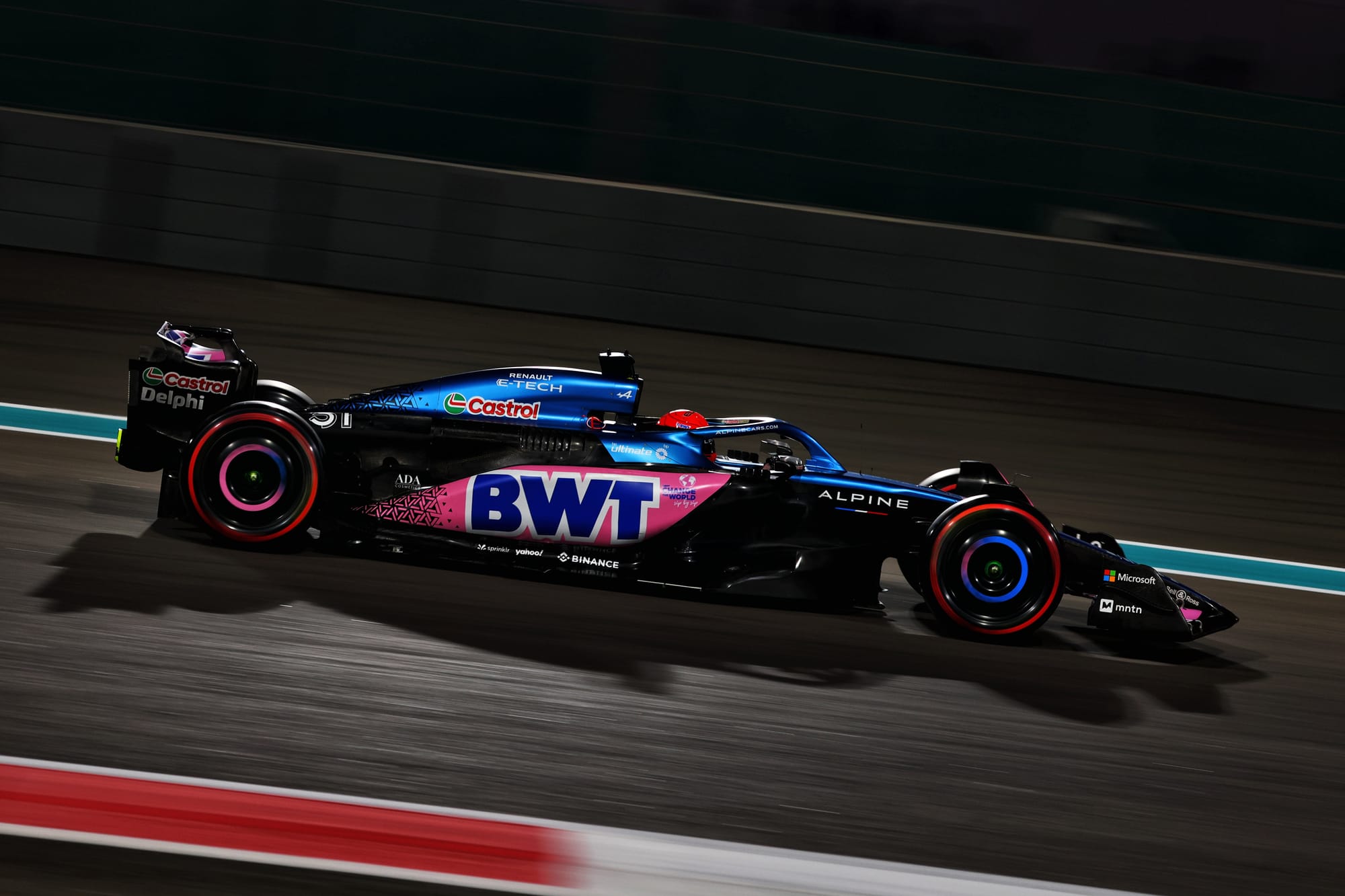Up Next

Whatever Williams is paying Alex Albon this year, likely just a few million dollars, is one of the best investments it has made given he’s single-handedly lifted it to seventh in the Formula 1 constructors’ championship.
In F1, the best drivers are paid enormous sums but in Albon Williams has got premium performance for a bargain bin price.
With every position in the standings worth approximately $10million (a figure that won’t be finalised until F1’s ultimate 2023 revenues are totted up) to teams, Albon’s value is obvious.
He scored 27 of Williams’s 28 points and was the strongest driver across the season of those in the four-team group at the back battling for seventh, eighth, ninth and 10th places. He was one of the standout performers of the season across the whole grid.
The Williams was, on average pace, the eighth- or ninth-fastest car (the position varies depending on whether you calculate it using only qualifying times or the supertimes method based on the fastest single lap of the weekend favoured by The Race), which means it’s easy to calculate Albon’s value.
The difference between tenth and seventh in the championship is roughly $30m and most would have predicted Williams to finish last for a second consecutive year. And it might have done, but for Albon’s performances.
The 27-year-old isn’t one to shout about his excellence from the rooftops, but he is justifiably very satisfied with his campaign.
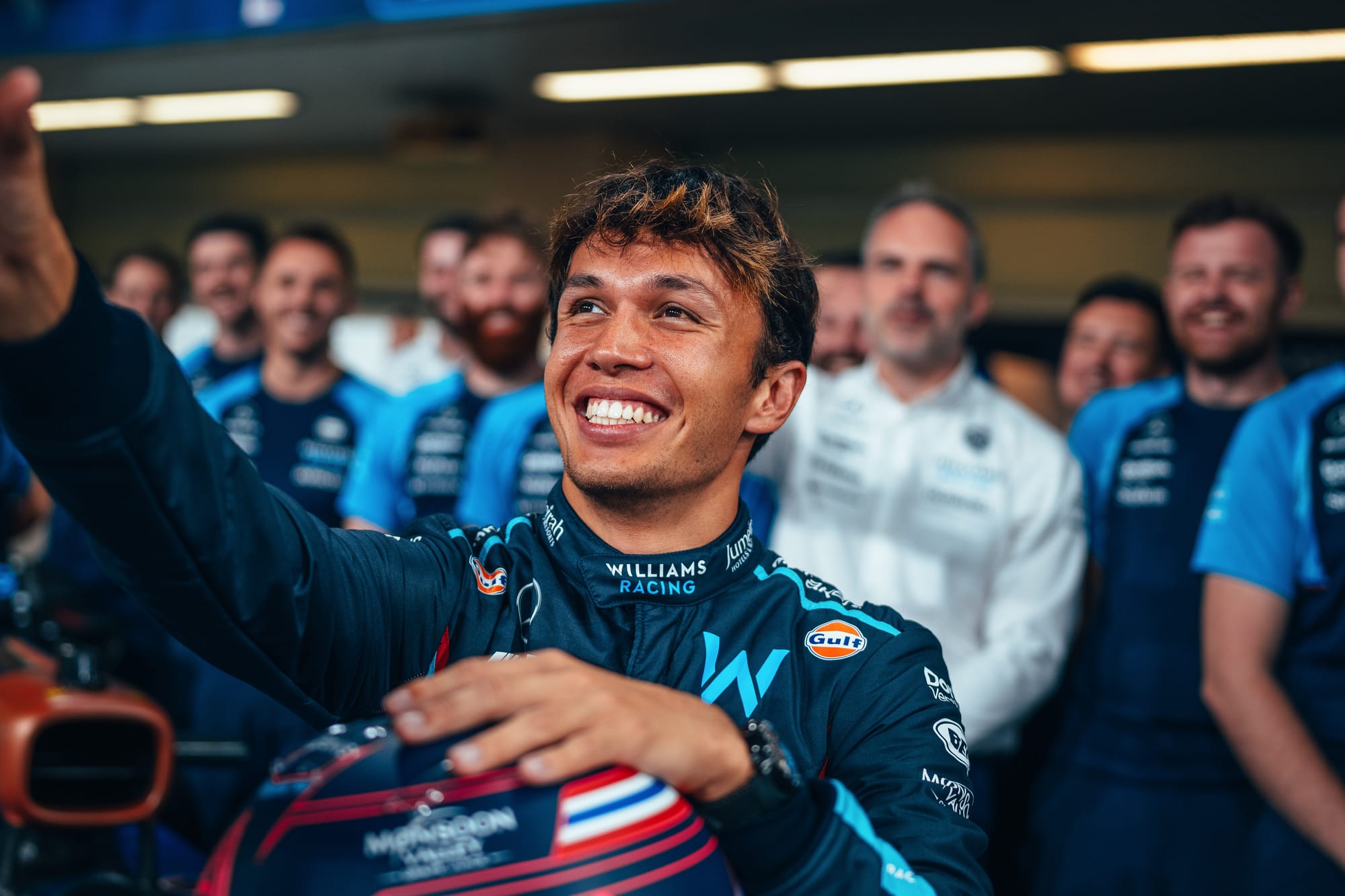
“I’m very proud of my performance,” said Albon when asked by The Race how big an achievement Williams taking seventh was for him personally.
“I’m not the most arrogant person, but I will give myself credit that I feel like I’ve had a very strong season. I felt like most of my races haven’t been simple, they’ve been races where we’ve been fighting, fighting, fighting the whole time.
“But I enjoy it, I feel like that’s the environment that I thrive in and for me it’s been my strongest year in Formula 1. That connection I have with the team has really helped that, and I feel like that’s where we’ve been able to execute the races we’ve done so well in.”
The statistics prove how valuable Albon was. He scored in seven grands prix, with an additional two points for seventh in the Qatar sprint. That made him comfortably the heaviest scorer in the four-team group at the back, bagging 10 points more than next-best Yuki Tsunoda.
Given AlphaTauri in particular made prodigious progress in terms of development, notably with its Singapore Grand Prix upgrade and with a new floor in Abu Dhabi that allowed Tsunoda to qualify sixth and finish eighth, Williams became less competitive in the closing stages of the season.
There was ample opportunity for AlphaTauri to have overhauled Williams, while had Alfa Romeo been more consistent and made the most of its opportunities it could easily have scored more heavily. As for Haas, while its car struggled on race day the single-lap pace was strong enough for it to qualify in the top 10 regularly. Yet Williams was able to beat all of them.
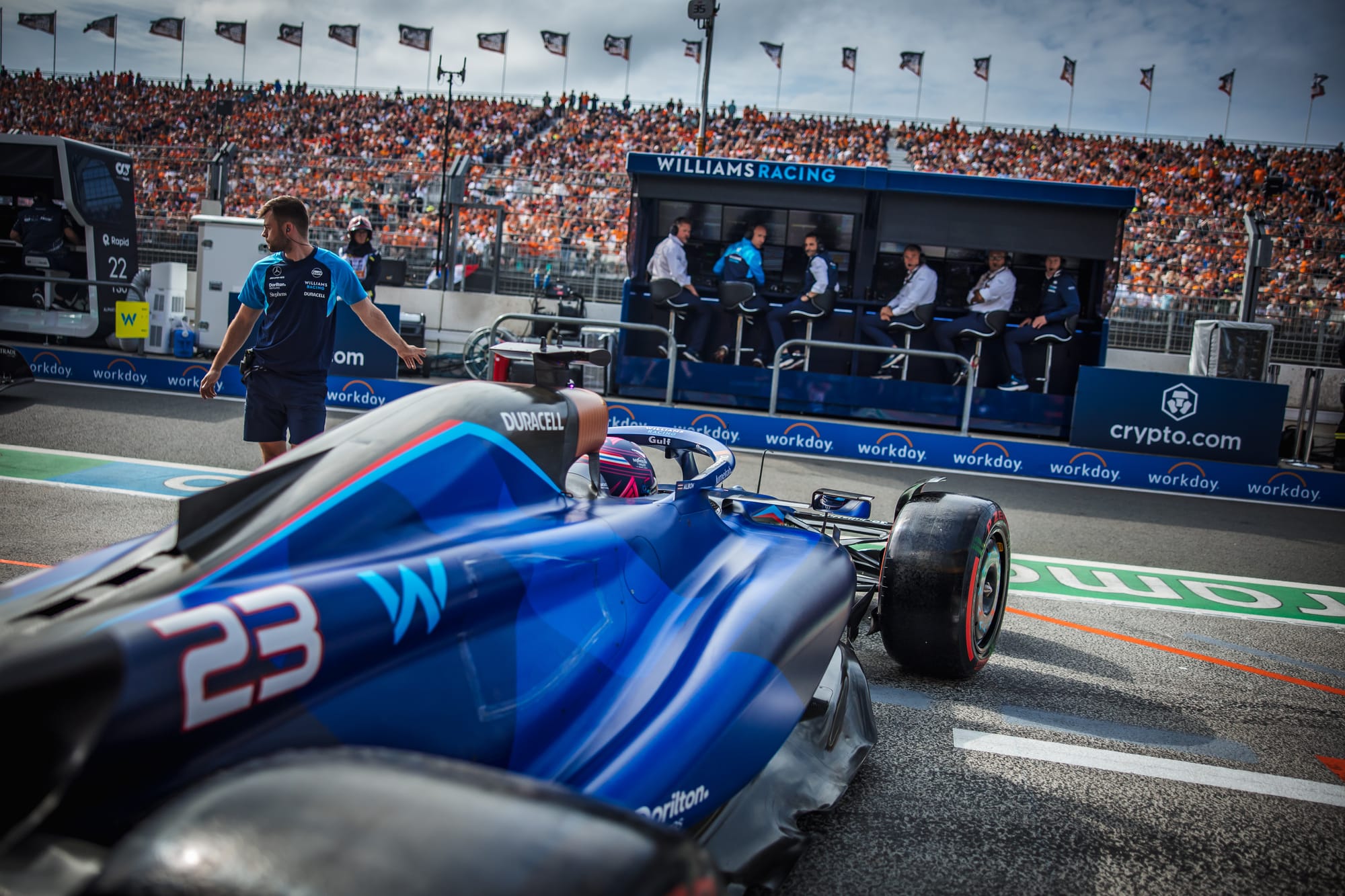
As Albon put it, “we’ve sacrificed a lot this year to focus on next year’s car”. This allowed Williams to do what he called “the bare minimum” to take seventh place.
But to do so required a consistently high level of performance that only Albon was able to produce, despite team-mate Logan Sargeant showing flashes of promise in the other car.
With the exception of the Australian Grand Prix, where Albon crashed out of sixth place, he has made the most of his opportunities. And as he’s pointed out, the key to success has been both the team and driver extracting close to the maximum from an erratic FW45 on a consistent basis.
“It’s strange because a lot of people think we’re very inconsistent, but I personally think the execution of each weekend has been very consistent,” said Albon.
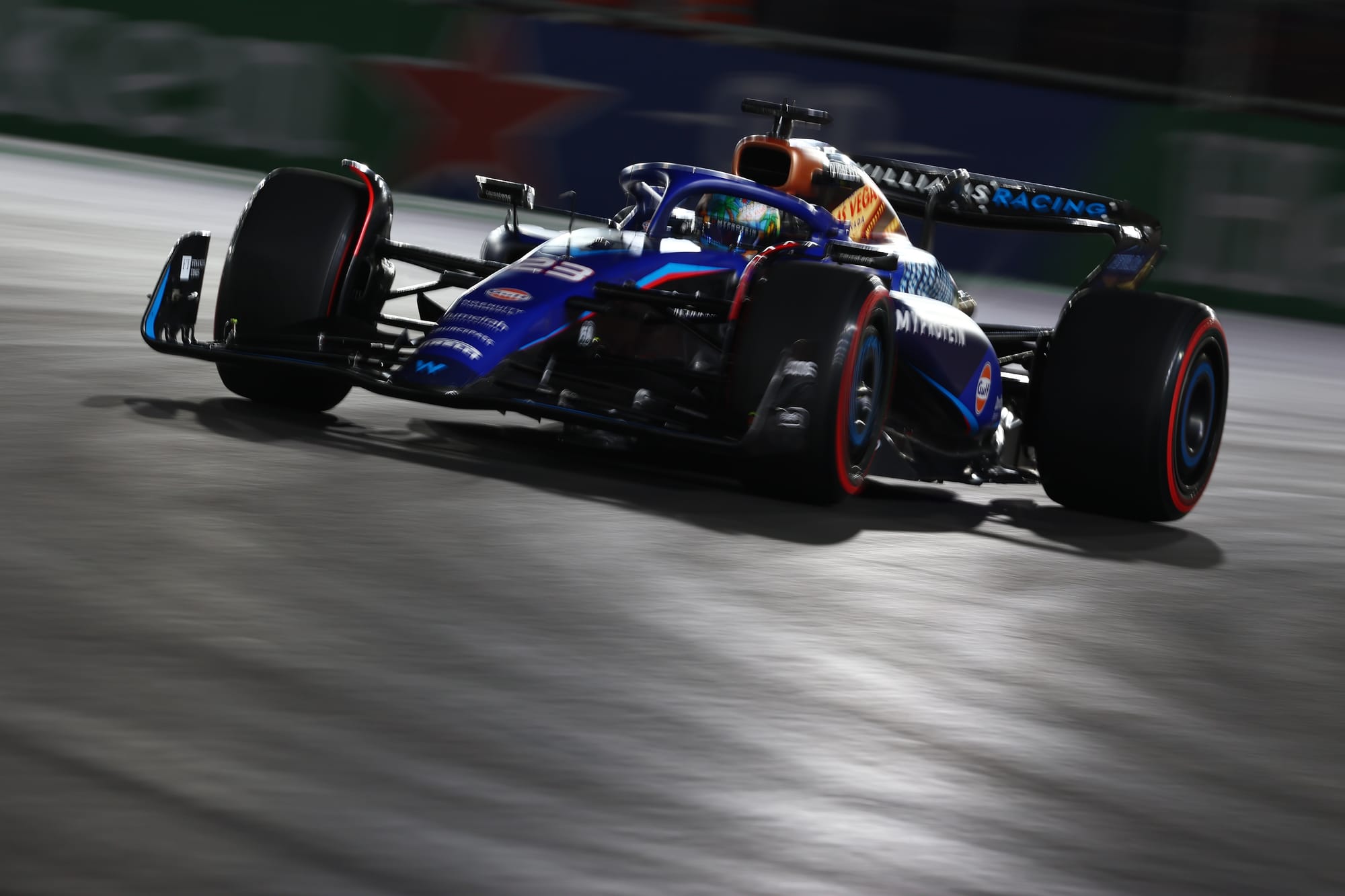
“The car itself is quite inconsistent. So, we know Monza, Vegas [low-downforce types of] tracks go well for us, we know cold tracks go well for us, we know hot tracks don’t work for us, we know windy tracks don’t work for us, we know tight tracks don’t work for us, so our car does have its moments. One of our biggest focuses next year is to stop these weaknesses in our car.
“But the execution has been very strong and we’ve made the most of our opportunities. That’s why I believe we’ve been able to actually get seventh. When we’ve had the car to do it, we’ve made sure we scored the points and others have either had a blunder with strategy or whatever it may have been just to miss out on points.”
Williams’s success is a reward for picking Albon up off the scrapheap in the first place, which means it’s only right it should benefit from what was a gamble given his struggles with Red Bull in 2020. He spent 2021 on the sidelines having been relegated to reserve driver by Red Bull, with Williams then signing him on a three-year deal that expires at the end of next season.
But the circumstances of his signing, as a Red Bull-contracted driver without a race drive, means it stands to reason that he was also a bargain.
While he parted ways with Red Bull during this deal, Williams will still be paying for a cut-price low-demand driver but one who is performing at a very high level. What’s more, he’s attracting interesting from some serious rivals for a move in the future.
Williams will be keen to retain Albon from 2025 onwards, but will face competition for his services. Whether it can re-sign him will be a test of how seriously its prospects of climbing the grid should be taken.
It is investing heavily both in its facilities and staff, but as Albon’s 2023 campaign has proved it’s essential to have a driver in the car capable of making the most of that. The car may define the performance potential but the driver’s job is to extract that, which Albon has done superbly.
And that isn’t only reflected in results, but also the team’s income. It has an unexpected extra $10m-30m coming in that proves that.


